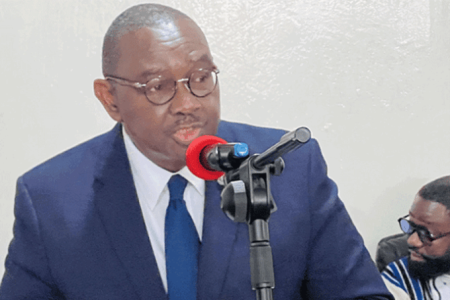The Federal Capital Territory (FCT), Abuja, has become embroiled in a land dispute following the revocation of 568 land allocations in the upscale Maitama II district. FCT Minister Nyesom Wike’s action, based on the Land Use Act of 1978, targets prominent figures, including state governors, legislators, and political party leaders, who failed to meet the January 15, 2025, deadline for settling outstanding Certificate of Occupancy (C-of-O) fees. This move has sent ripples through the real estate sector, impacting developers and individual property owners alike.
Developers in the FCT are facing significant challenges due to the recent land revocations and the government’s demand for swift debt settlement. The abrupt policy shift has disrupted ongoing projects, forcing developers to reassess their strategies. Many are now opting for smaller-scale projects, prioritizing plots of two to four hectares over larger tracts to manage financial risks. The uncertainty surrounding land ownership has also dampened investor confidence, leading to sales decline and hesitance among potential buyers. The prevailing sentiment is one of distrust in the system, as developers grapple with the possibility of further revocations.
The situation is further exacerbated by the difficulties in obtaining C-of-Os. Developers complain about the slow processing times, which often clash with the government’s accelerated construction timelines. This mismatch creates a bureaucratic bottleneck, adding to the pressures faced by developers already struggling with the recent revocations. The government’s two-week ultimatum for debt settlement has added another layer of complexity. Developers argue that this short timeframe is unrealistic and doesn’t align with the cash flow realities of the real estate business. This demand, coupled with the threat of land revocation, is creating a tense environment for developers.
Specific cases of land revocation, particularly in the Idu Train Station area, illustrate the severity of the situation. Reports indicate that properties were seized and reallocated, forcing developers to refund clients and further eroding trust in the system. These incidents highlight the vulnerability of developers and property owners in the face of government action. The fear of similar actions in other areas is contributing to the overall instability in the real estate market.
The impact of the land revocations extends beyond developers, affecting individual property owners as well. Many individuals who received land allocations years ago and neglected to settle the necessary fees are now facing significant financial burdens. The sudden demand for large sums within a two-week window has sparked widespread complaints and calls for a more flexible payment schedule. The Council of Registered Builders of Nigeria (CORBON) has echoed these concerns, urging the FCT Authority to consider the financial strain on property owners and grant an extension for payment.
The government’s actions have sparked debate within the real estate community. While some view the strict enforcement of land-use regulations as necessary for accountability, others argue that the two-week notice is unreasonable and counterproductive. CORBON has called for a dialogue between the authorities and stakeholders to find a more balanced approach that promotes stability and growth in the real estate sector. This call underscores the need for a more collaborative approach between the government and the real estate industry to navigate the current challenges.
The FCT Minister’s aide, Lere Olayinka, defends the government’s actions, highlighting a perceived shift in public perception. He suggests that the government’s decisive actions have instilled a renewed sense of trust in its ability to follow through on its promises. Furthermore, Olayinka emphasizes the minister’s impartial approach, portraying him as a leader who prioritizes adherence to rules over personal relationships. This narrative seeks to justify the strict enforcement of regulations, irrespective of the impact on individual stakeholders. Meanwhile, some lawmakers, such as Oluwole Oke, are appealing for a more lenient approach, urging the minister to grant an extension for payment and consider the lack of infrastructure in the affected areas. This plea highlights the ongoing tension between the government’s drive for accountability and the practical challenges faced by those impacted by the land revocations.













